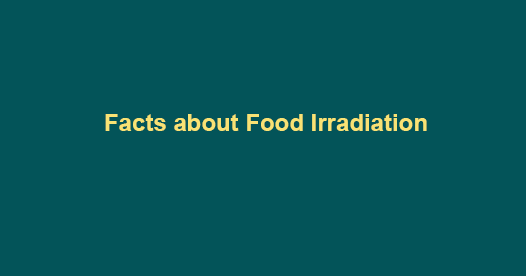
What is Food Irradiation?
Food irradiation is a technology in which food products are subjected to a low dosage of radiation to treat them for germs and insects, increasing their longevity and shelf life.
It is the application of ionizing radiation to food in which energy is transmitted without direct contact in the targeted food.
The radiation can be emitted by a radioactive substance or generated electrically.
The irradiated food does not become radioactive. Radioisotopes are used as the source for the gamma rays.
Generally cobalt-60 radioisotope is used as a radioactive source for gamma irradiation.
Then International Atomic Energy Agency (IAEA) recommends the irradiation doses for Food irradiation.
Why India needs strong network of Agro Irradiation Centres?
In India post-harvest losses in food and food grains are around 40-50%.
It is primarily due to microbiological contamination, insect infestation, physiological changes due to sprouting and ripening, and poor shelf life.
The wastage of fruits and vegetables including cereals, meat, pulses and flowers results in the annual loss estimated to be Rs. 2,50,000 crores.
There is presence of few low level irradiation plants in the country which are not adequate.
So to reduce the losses in food and food grains and meet the demand it is necessary to increase strong network of agro irradiation centres.
Benefits
Irradiation is equivalent to pasteurization for solid foods, but it is not the same as sterilization.
It does not reduce the nutritional value of food products and does not change their organoleptic properties and appearance.
The irradiation treatment of food and foodgrains preserves them for longer time, prevent the spread of invasive pests, delay/eliminate ripening or sprouting and reduce the risk of food borne illness.

Join The Discussion